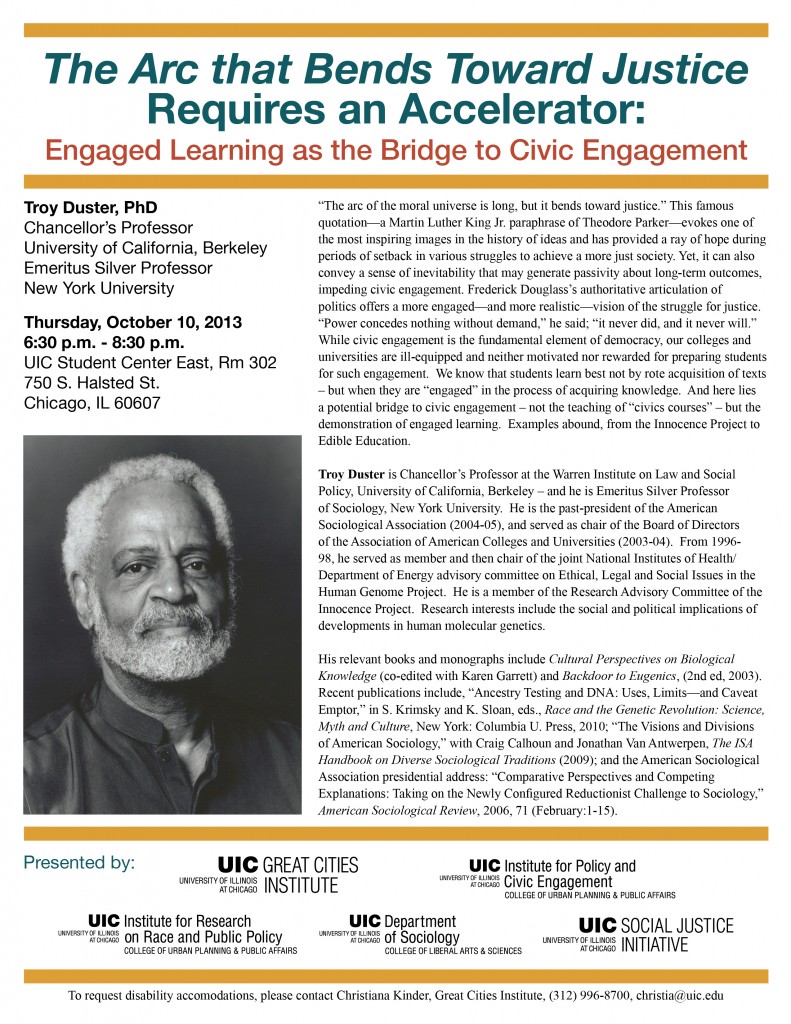Biking in the city has never been easier or more accessible! In this seminar you’ll hear from Sean Wiedel of the Chicago Department of Transportation (CDOT) on bike lanes and other bike infrastructure along with legislative changes that the City of Chicago has instituted to making cycling safer than ever. Sean will also discuss the City’s exciting new Divvy bike share program that is revolutionizing transit in Chicago.
Sean Wiedel is an Assistant Commissioner at the Chicago Department of Transportation where he oversees the Citywide Services section. Citywide services include the Divvy bike share program, bike safety education initiatives (such as the Bicycling Ambassadors) along with travel demand management and alternative fuels deployment programs.
Sean also provides leadership to City of Chicago sustainability programs including Greencorps Chicago job training, Chicago Center for Green Technology, Chicago Conservation Corps leadership training, and the Sustainable Backyards green infrastructure rebate programs. Prior to joining CDOT, Sean was Assistant Commissioner of Natural Resources and Water Quality at the Chicago Department of Environment (CDOE).




